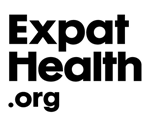Outpatient medical care is largely taken care of by private doctors and by outpatient departments of public hospitals or private clinics. Normally, patients are free to choose their own doctor and also have unlimited, direct access to specialists.
Doctors
You can find a doctor ( Arzt/médicin) in the Yellow Pages. General practitioners are listed under Allgemeine Medizin or médicin général, or you can also have a look on DocApp and doctor.ch . If you need a doctor that speaks your native language, contact your embassy or consulate as they can often provide a list.
Cantons and communes offer a school doctor service which regularly carries out check-ups in state schools, monitors immunity status, organizes vaccination programs etc.
Hospitals
Hospitals ( Krankenhaus, Spital/hôpital) can be recognized by a white "H" on a blue background and are listed in the yellow pages under Spitäler or hôpitaux. Except for emergencies, you usually have to be referred to a hospital by a doctor. You normally have to visit a hospital in the canton where you are residing, although there are exceptions to this.
Depending on your insurance scheme, you will either be put in a general ward with two to four beds (standard cover), a two-bed room (half private) or a single room (private). Note that standard cover does not give you the right to choose your doctor, this may be important as not all doctors may speak your language.
Hospitals in Switzerland aren’t cheap! All hospital fees have to be paid for either by you or your insurance company. There is no such thing as ‘free treatment’ in Switzerland (even in the case of emergencies). If the decision is up to you whether or not to go into the hospital, you should first talk to your insurance company.
After visiting a hospital or doctor, you will receive a bill which you should pay within the specified period (usually around 30 days). You then send a copy to your insurance company, which will reimburse the percentage covered by your insurance scheme. If you are not resident in Switzerland and don’t have any sufficient health insurance, hospitals can require a deposit upon your admittance, which may range from CHF 2000 to 10,000.
Dental care
Dental care is provided mainly by private dental practices and public dental clinics. Note that dental treatment is extremely expensive in Switzerland, so consider getting a dental checkup at home before you leave or take advantage of a trip home. Dental treatment is not covered by the basic health insurance scheme. Since the cost of a treatment is prohibitive in Switzerland, consider getting additional dental insurance if you stay for a while.
Medical care
The importance of home medical care ( Spitex) has increased in recent years. To a limited extent, basic insurance covers a part of the care services and home help. Provision of these services is the responsibility of the communes, which often delegate this task to private associations and organizations.




